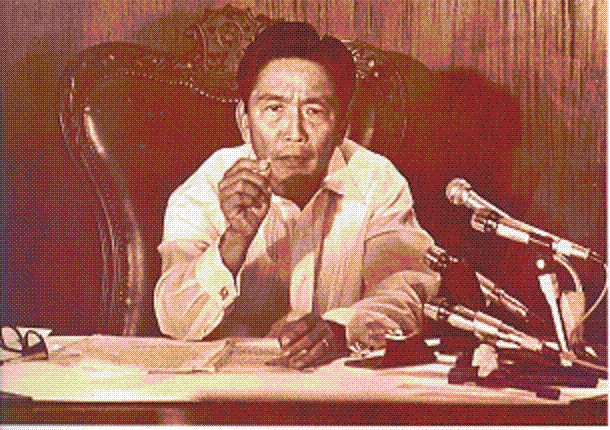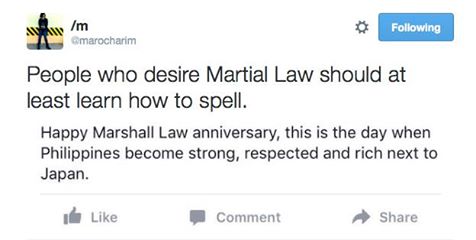It would perhaps be educational for everybody else who seems to agree that Martial Law was not the best idea if Marcos loyalists — many of whom were born after the dictator fled the country in disgrace — would share their sources. Either of stories about how life was great back then, or of the drugs they seem to be taking to believe that Marcos deposited tons of gold at the World Bank (which does not quite work like a regular bank where people deposit things, in any case) for the benefit of the Filipino people.
Listen: It is fine — commendable, even — to be skeptical of whether the years after 1986 were much better than during the dictatorship. You can argue that Marcos was not that bad. He gave us, you might say, the Light Rail Transit, the Cultural Center of the Philippines, and the Bataan Nuclear Power Plant (that last one is debatable) and you would not be wrong. You can even dismiss recorded history and the research of academics as pro-Aquino propaganda.
What isn’t fine is making facts up like, for example, that the Philippines became a great nation when “Marshall Law” was declared this month in 1972. In fact, to hear Marcos talk about it, the country was a mess. The communists, he said, had “taken up arms against our duly constituted government and against our people, and [have] committed and are still committing acts of armed insurrection and rebellion.”
“[I]n addition to the above-described social disorder, there is also the equally serious disorder in Mindanao and Sulu resulting from the unsettled conflict between certain elements of the Christian and Muslim population of Mindanao and Sulu, between the Christian ‘Ilagas’ and the Muslim ‘Barracudas’, and between our government troops, and certain lawless organizations such as the Mindanao Independence Movement,” he said, stressing that the Philippines was in such dire straits that he needed to impose martial law.
We were, he said, in a state of war. One that lasted, apparently, until 1981, when Martial Law was lifted (but really only on paper). Where, one wonders, did we find the time to “become strong, respected, and rich next to Japan”?
We did not have the time, according to Hot Manila, who lived through Martial Law and actually has sources.
What isn’t fine is saying that the Marcoses are fighting government efforts to recover their ill-gotten wealth because the family wants to distribute the money to poor Filipinos.
Members of a loyalist organization have been paying dues and shelling out money for saplings for tree-planting activities and Imelda memorabilia on that premise and have received nothing. When some members complained before the Securities and Exchange Commission, one of the group’s officials said that they have to keep paying and be patient. The Marcoses have, of course, disavowed the group.
Or that there is no proof that the Marcoses stole from the Filipino people. The Presidential Commission on Good Government has recovered at least P168 billion in ill-gotten wealth from the Marcoses and their cronies since 1986.
Or that, again, Marcos deposited thousands of tons of gold at the World Bank that he got from digging up Yamashita’s treasure.
Or that there were basic freedoms under Marcos.
And in the end, that is what matters: Even if Marcos built 10 LRTs and the CCP was the size of the Mall of Asia, even if he and his pals did not get rich while he was in power, even the staunchest loyalist cannot deny that for whatever Marcos gave the Filipino, he also took away the right to vote, the right to know the truth, and the right to disagree.
The right, even, to go out at night. Or, for female detainees, the right to their own bodies.
From many, he also took the right to life.



6 Comments